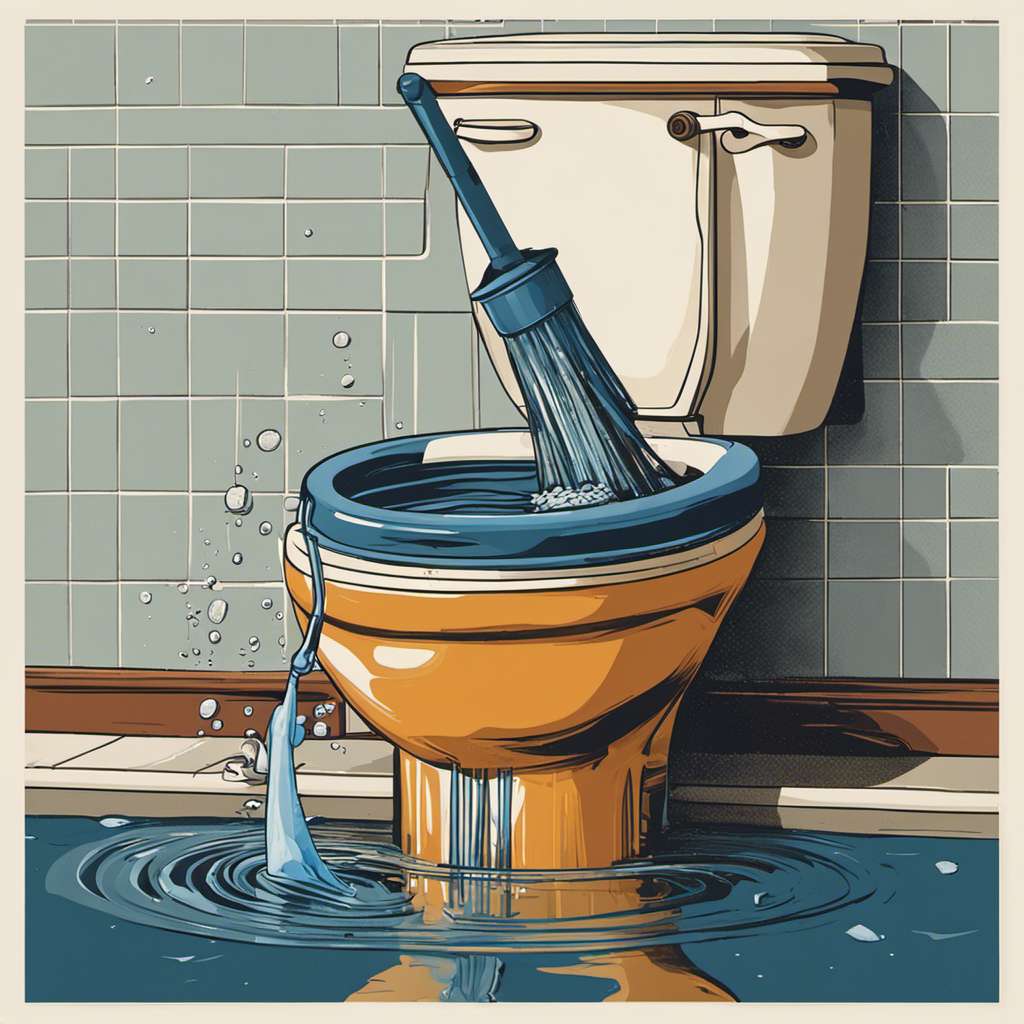We have all been informed about the significance of correctly disposing of household waste, but were you aware that improper disposal of pharmaceutical waste can lead to severe consequences?
From water pollution and contamination to the risk of antibiotic resistance, our actions can have far-reaching impacts on both human health and aquatic ecosystems.
In this article, we will explore the various negative effects of improper pharmaceutical waste disposal and discuss the need for proper disposal methods to mitigate these harmful consequences.
Key Takeaways
- Environmental impact: Improper disposal of pharmaceutical waste leads to contamination of water sources, soil, and ecosystems, causing ecological imbalance and harm to aquatic organisms. It also results in the loss of marine biodiversity and increased risk of bioaccumulation in wildlife.
- Risks to human health: Contamination of the environment introduces pharmaceutical compounds into the food chain, contributing to the development of drug resistance. This compromises the effectiveness of antibiotics and other medications, leading to adverse effects on human health and an increased risk of drug diversion and misuse.
- Economic consequences: Improper disposal of pharmaceutical waste results in costs associated with environmental cleanup and remediation. It also leads to expenses related to healthcare treatments for affected individuals, loss of productivity, and potential legal liabilities for healthcare facilities and manufacturers. Additionally, antibiotic resistance causes increased healthcare costs, loss of productivity, and limited treatment options.
- Importance of environmental regulations: Legal regulations are necessary to prevent water contamination and improper disposal of pharmaceutical waste. They ensure responsible management of waste, prevention of harmful chemical release, compliance with regulatory standards, and promotion of sustainable waste management practices.
Water Pollution and Contamination
The improper disposal of pharmaceutical waste can lead to the contamination of water sources, ultimately affecting the quality of drinking water. When pharmaceutical waste isn’t disposed of properly, it can enter water bodies through various pathways, such as improper disposal in sinks or toilets, leaching from landfills, or runoff from agricultural areas. These contaminants can persist in the environment and have detrimental effects on drinking water supplies.

Legal regulations have been put in place to address this issue and ensure the proper disposal of pharmaceutical waste. These regulations aim to prevent the contamination of water sources and protect the health of the population. However, despite these regulations, the improper disposal of pharmaceutical waste continues to pose risks to human health.
In the following section, we’ll explore the specific risks associated with the improper disposal of pharmaceutical waste.
Risks to Human Health
One of the primary risks to our health posed by the improper disposal of pharmaceutical waste is the potential for drug resistance to develop.
When pharmaceutical waste isn’t disposed of properly, it can contaminate the environment, including water sources and soil. This contamination can lead to the introduction of pharmaceutical compounds into the food chain, which can then be consumed by humans.

Exposure to these compounds can contribute to the development of drug resistance, where bacteria and other microorganisms become less susceptible to the effects of medications. This poses a significant risk to medication efficacy, as the effectiveness of antibiotics and other drugs may be compromised.
Additionally, improper disposal of pharmaceutical waste can have legal implications, as it violates environmental regulations and may result in fines or other penalties.
It’s crucial that proper disposal methods are followed to mitigate these risks and protect human health.
Impact on Aquatic Ecosystems
To understand the full consequences of improper disposal of pharmaceutical waste, we must explore its impact on aquatic ecosystems. Improper disposal of pharmaceutical waste can lead to an ecological imbalance in these ecosystems, resulting in the loss of marine biodiversity. When pharmaceuticals enter water bodies, they can have detrimental effects on aquatic organisms, including fish, invertebrates, and algae.

Pharmaceutical waste often contains chemicals that are designed to have specific effects on the human body. However, when these chemicals enter aquatic ecosystems, they can disrupt natural processes and harm organisms. Some pharmaceuticals can accumulate in the tissues of aquatic organisms, leading to long-term negative effects on their health and reproduction.
The loss of marine biodiversity due to the improper disposal of pharmaceutical waste can have far-reaching consequences for aquatic ecosystems. Each organism plays a crucial role in maintaining the balance of the ecosystem, and the loss of even a single species can have cascading effects on the entire system.
Therefore, it’s essential to properly dispose of pharmaceutical waste to prevent ecological imbalance and preserve marine biodiversity in our aquatic ecosystems.
Contribution to Antibiotic Resistance
Improper disposal of pharmaceutical waste contributes to the development of antibiotic resistance in bacteria. When pharmaceuticals are improperly disposed of, they can enter the environment through various routes such as wastewater, landfills, and agricultural runoff. These pharmaceuticals can then come into contact with bacteria in these environments, leading to the development of antibiotic resistance. This is a significant concern as antibiotic resistance poses serious threats to public health and has economic implications.

To emphasize the economic implications and the need for regulatory measures, consider the following table:
| Economic Implications of Antibiotic Resistance |
|---|
| Increased healthcare costs |
| Loss of productivity |
| Limited treatment options |
| Impact on agricultural industry |
| Global economic burden |
As antibiotic resistance continues to rise, the economic burden on healthcare systems, industries, and society as a whole is expected to increase. Therefore, it is crucial to implement stringent regulatory measures to ensure the proper disposal of pharmaceutical waste and mitigate the development of antibiotic resistance.
This highlights the urgent need for proper disposal methods to prevent the negative consequences of pharmaceutical waste on the environment, public health, and the economy.
Need for Proper Disposal Methods
Proper disposal methods for pharmaceutical waste are essential to prevent adverse effects on the environment, public health, and the economy. Implementing appropriate disposal methods not only minimizes the risk of contamination and pollution but also helps to maintain a sustainable and healthy ecosystem.

In order to ensure the safe disposal of pharmaceutical waste, it’s important to consider cost-effective solutions that comply with environmental regulations. Environmental regulations play a crucial role in ensuring that pharmaceutical waste is managed in a responsible manner. By adhering to these regulations, healthcare facilities and pharmaceutical manufacturers can prevent the release of harmful chemicals into the environment and protect public health.
Moreover, proper disposal methods can also have a positive impact on the economy by reducing the costs associated with environmental cleanup and healthcare expenses resulting from exposure to improperly disposed pharmaceutical waste.
Frequently Asked Questions
How Does Improper Disposal of Pharmaceutical Waste Contribute to the Spread of Waterborne Diseases?
Improper disposal of pharmaceutical waste contributes to the spread of waterborne diseases by contaminating water sources. This poses a significant environmental impact and increases the risk of infections and diseases for communities exposed to contaminated water.
What Are the Potential Long-Term Effects on Human Health Due to Exposure to Pharmaceutical Waste in Water Sources?
Exposure to pharmaceutical waste in water sources poses potential health risks and has an environmental impact. Long-term effects on human health may include chronic illnesses, drug resistance, and disruption of ecosystems.

Can the Improper Disposal of Pharmaceutical Waste Lead to the Contamination of Drinking Water Supplies?
Yes, improper disposal of pharmaceutical waste can contaminate drinking water supplies, posing serious contamination risks and significant environmental impact. It is imperative to address this issue through proper disposal methods to safeguard public health and the environment.
How Does the Disposal of Expired or Unused Medications Impact the Aquatic Plants and Animals in Ecosystems?
Improper disposal of expired or unused medications has detrimental ecological consequences, impacting biodiversity and aquatic plants and animals in ecosystems. Contamination and disruption of delicate ecosystems occur, jeopardizing their balance and survival.
Are There Any Legal Consequences for Individuals or Companies Found Guilty of Improper Disposal of Pharmaceutical Waste?
There can be legal consequences for individuals or companies guilty of improper disposal of pharmaceutical waste, as it can cause significant environmental impact. It is important to follow proper disposal procedures to avoid these repercussions.
Conclusion
In conclusion, the consequences of improper disposal of pharmaceutical waste are far-reaching and significant.

The juxtaposition of water pollution and contamination, risks to human health, impact on aquatic ecosystems, and contribution to antibiotic resistance highlights the urgent need for proper disposal methods.
It’s imperative that we take immediate action to ensure the safe and responsible disposal of pharmaceutical waste to protect our environment, health, and future generations.










